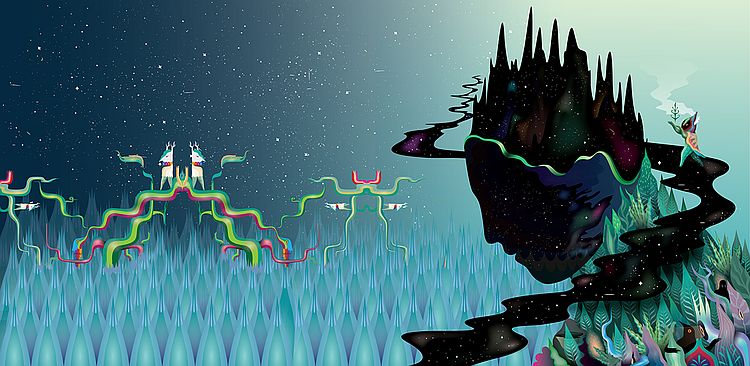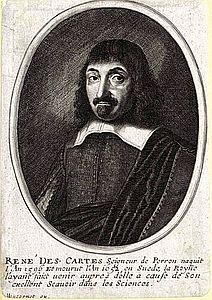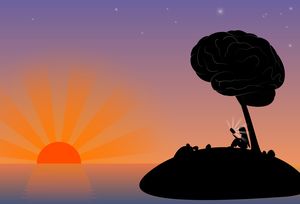Sorry, this entry is only available in Deutsch.
Year: 2018
(Deutsch) Rezension Trisolaris-Trilogie von Liu Cixin – Jenseits der Zeit (Band 3)
Sorry, this entry is only available in Deutsch.
(Deutsch) Studium und Studienwahl Pädagogische Psychologie
Sorry, this entry is only available in Deutsch.
Neuroscience and Education – Presentations from the SIG 22 Meeting 2018
Presentations from the fifth biennial SIG22 Neuroscience and Education conference
Monday 4th – Wednesday 6th June 2018
London, United Kingdom
SIG 22 brings together researchers from the fields of educational science, cognitive psychology, developmental psychology, genetics, and neuroscience as well as interdisciplinary people with training in each of these fields, all of which investigate human learning and development. Taking interdisciplinarity as a basic principle, the SIG conceives the relation between educational research and neuroscience as a two-way street with rich bi-directional and reciprocal interactions between educational research and (cognitive) neuroscience.
10 Presentations in total:
INTRODUCING NEUROSCIENCE INTO INITIAL TEACHER EDUCATION
Paul Howard-Jones, Konstantina Ioannou and the PGCE team, Shu Yau and *Tim Jay
University of Bristol, Sheffield-Hallam University
PDF YouTube
Descartes’ Error – sentio, ergo sum

Let’s do a simple thought experiment: when I think of violence, am I a criminal? When I think of giving presents to someone else, am I a benefactor?
Even in this simple thought experiment, it becomes clear that conscious thinking can always focus on just one point – just as speaking does. Does this one focus defines human being? Hardly likely.

What constitutes humanity much more is the sum of the experiences of a human being. This wealth of experiences could therefore be considered as being human.
The exciting question is now how we draw on this wealth of experience. Certainly, we can consciously remember a single event in our past. However, does that help us to recognize who we are?
There is one system that is able to assess the vast majority of personal experiences at once. Personality psychologist Julius Kuhl calls this system “extension memory”. This system can assess a person’s wealth of experience in a parallel and holistic way and gives a feeling as a result of this assessment.
This self-system or so-called extension memory becomes especially important when it comes to assessing and evaluating social interaction in a matter of seconds. For example, when I meet a person I did not know before, after a very short time I know how to judge that person.
Maybe this first assessment is not very accurate. But at least it gives an indication of how I should deal with this person in the future. Thus, the extension memory is capable of retrieving all associations with a new person within a very short period of time and of pooling those associations in a feeling for that person. Therefore, if everything goes well, within a few moments I know if I can trust this person. Or if I’d rather avoid this new person.
The extension memory is also responsible for a whole series of processes, such as the intrinsic motivation for learning, which we just demonstrated in the current research project Sensomot – read this in the next blog post “motivated learning“.
So we can say with certainty that Descartes was wrong. This sentence might be much more accurate:
“Sentio, ergo sum.” (I feel, therefore I am)

This work is licensed uner Attribution-NonCommercial-ShareAlike 4.0 International
(Deutsch) Neues Handbuch zum Mobile Learning erschienen
Sorry, this entry is only available in Deutsch.
(Deutsch) Schulnoten oder Rohrstock – Warum sind Schulnoten so verführerisch und so gefährlich?
Sorry, this entry is only available in Deutsch.
(Deutsch) Kleine Daten für das Lernen – Small Data in Learning
Sorry, this entry is only available in Deutsch.
(Deutsch) Notengebung und selbstreguliertes Lernen oder die Rückkehr des Odysseus
Sorry, this entry is only available in Deutsch.
(Deutsch) Freie Unterrichtsmaterialien – Praktische Tipps zum freien Download
Sorry, this entry is only available in Deutsch.
(Deutsch) Digitalisierung in der Bildung – Was ist wünschenswert, was ist machbar?
Sorry, this entry is only available in Deutsch.
(Deutsch) Rezension zum neuen Buch von Richard David Precht – Jäger, Hirten, Kritiker: Eine Utopie für die digitale Gesellschaft
Sorry, this entry is only available in Deutsch.
(Deutsch) Vorsätze oder Wirf-Deine-Neujahrsvorsätze-über-Bord-Tag am 17. Januar
Sorry, this entry is only available in Deutsch.
(Deutsch) Langeweile
Sorry, this entry is only available in Deutsch.

